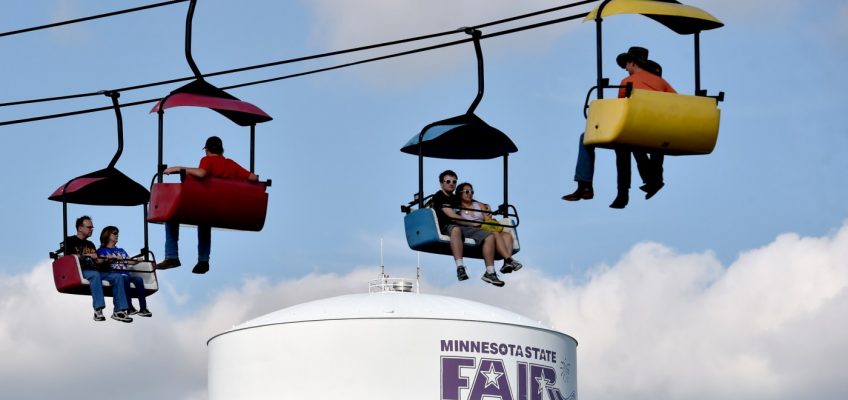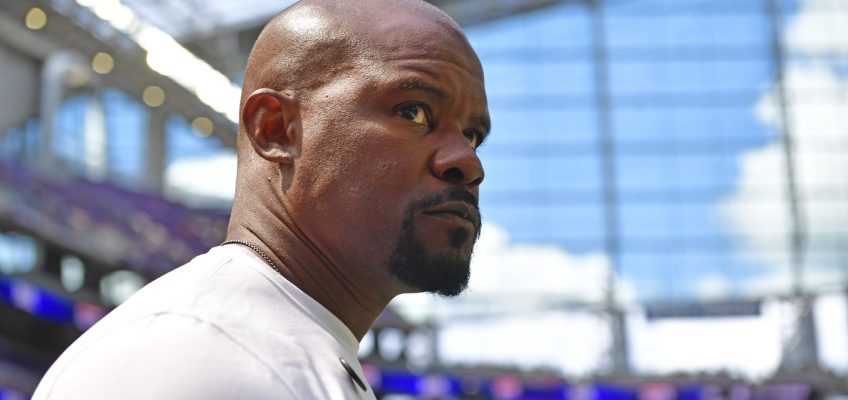New striker Kelvin Yeboah was fitting in just right at Minnesota United’s training grounds in Blaine on Tuesday.
The Ghanian/Italian native joked with new teammate Bongi Hlongwane during one drill, got in some extra touches post-practice with Joseph Rosales and relaxed barefoot in the grass after the session with Dayne St. Clair and few club staff members.
The 24-year-old has been here before. Well, not here here, but Yeboah has gotten used to meeting new people in new places after playing in six different European countries since 2017.
After being transferred from Sturm Graz in the Austrian Bundesliga to Genoa in Italy’s Serie A in 2022, Yeboah was sent on three separate loans to Augsburg in the German Bundesliga, Montpellier in France’s Ligue 1 and Standard Liege in Belgium’s Pro League A.
Yeboah acknowledged it was tough to live such a transient life, but can now fully unpack in Minnesota after signing a 3½-year contract with MNUFC through the 2027 season. He said he learned a lot about himself as he lived out of a suitcase, especially in the last two years.
“I think it’s also very good for yourself, to get to know yourself,” Yeboah told reporters Tuesday. “… Bouncing around, playing in different leagues also gave me a lot of experience. … By playing all these places, it built me up to be who I am now. So, I had to mature pretty quickly. It’s a good experience to have.”
Loons Chief Soccer Officer Khaled El-Ahmad signed Yeboah to 1 of 3 high-level Designated Player contracts. United’s transfer fee to Genoa was approximately $3.2 million, less than half the reported $7.2 million Genoa agreed to pay Sturm Graz for Yeboah in 2022.
“A good opportunity in the market,” El-Ahmad said.
El-Ahmad was working for City Football Group when he was first drawn to Yeboah when he played in Austria in 2020-22. El-Ahmad brought up that long-held appeal when he pitched Yeboah on coming to Minnesota.
“It also impressed me how well (he) knew me,” Yeboah said.
Yeboah was intrigued by playing in MLS and for head coach Eric Ramsay, but before making a decision he consulted with his uncle, Tony Yeboah, who played at Eintracht Frankfurt, Leeds United and elsewhere in the 1980s and ’90s. Kelvin often talks to Tony, but he didn’t expect the details his 58-year-old elder knew about MLS.
“He was actually knowing a lot about it,” Kelvin said. “And he told me, ‘Wow, this is actually a good opportunity, I think you should take it.’ I think it could be a very good step for your career. So, once he said that, it also give me also more peace to take the decision on.”
El-Ahmad cited connections to front offices at Standard Liege and Genoa for helping inform his decision, as well as the process in bringing Yeboah over to the Loons.
“When it comes to Kelvin, we wanted pace — drive to run in behind, brave enough to dribble, pass people with pace and just a natural instinct that he wants to constantly go forward,” El-Ahmad said. “I think in terms of the other offensive players we have, he fits well.”
Yeboah described himself first as “quite energetic, fast and pretty technical.”
El-Ahmad also wants to temper expectations for Yeboah and the four other players brought in at the summer transfer window. Ahead of their debuts, he reminded how it can be a difficult transition to join a team midseason in a foreign country.
Ramsay and Yeboah are eager for him to take the field Saturday against Seattle Sounders at Allianz Field.
“He is probably ahead of where we would expect him to be,” Ramsay said. “He is a really strong character. He is someone we wanted to give space to, and he has taken that space and led the group. He’s a really good character.”
“He is someone that trains with a real purpose,” the coach added. “He is desperate to come here and get better and use it as a platform to accelerate his career and his trajectory. And you feel that day to day. We’ve been really pleased with him and I think he will make a big mark.”
Yeboah hasn’t played a game since mid-May and was asked Tuesday about his fitness level.
“I think,” he said with a smile, “we’re gonna see on Saturday.”




